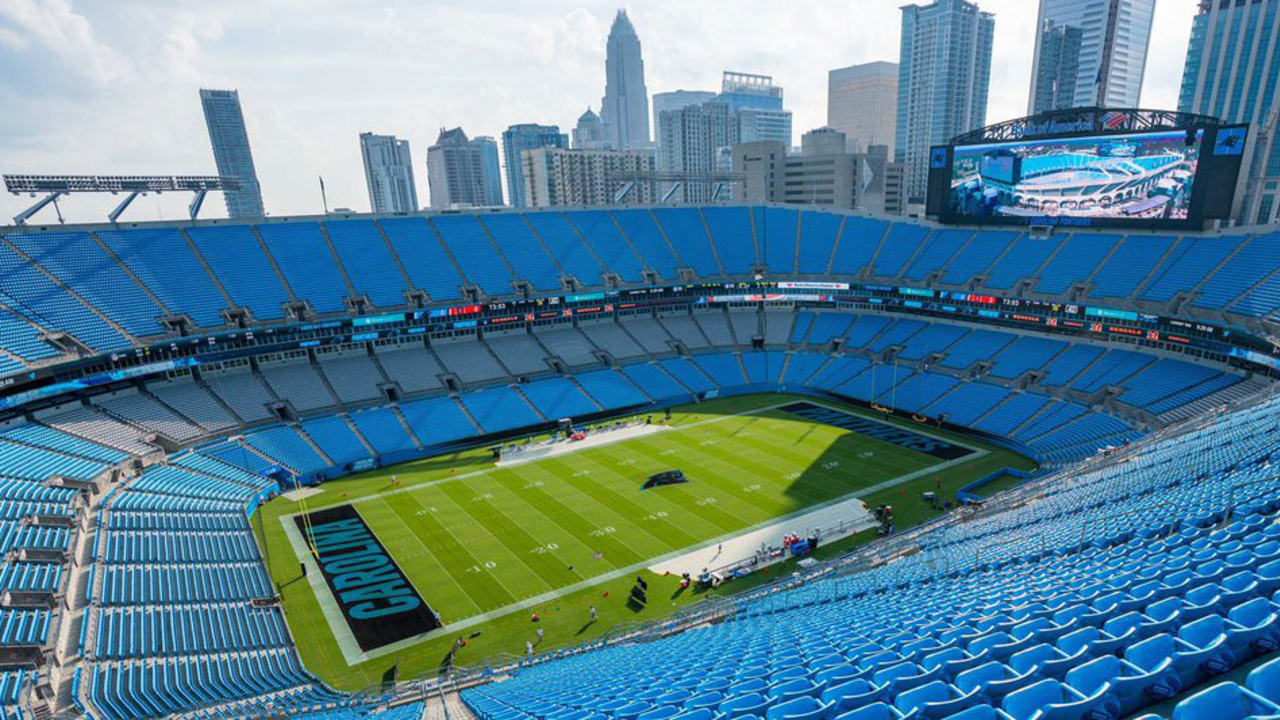Sir Purr
Well-known member
- Mar 16, 2019
- 1,969
- 0

CHARLOTTE – Tom Vaughan’s horticulture degree from Clemson includes a concentration in ornamental design, so surely the Panthers’ head groundskeeper for the past 18 seasons has a stack of “Yard of the Month” signs somewhere in his shed.
“What’s the saying: ‘A painter’s house is never painted’? My yard is fine, but it’s been a point of contention between me and my wife,” Vaughan joked. “Everybody needs a break.”
The immaculate tract of turf inside Bank of America Stadium that Vaughan and his staff meticulously tend needs a break as well, but it’s set to see more offseason foot traffic in the coming weeks and perhaps in the coming years.
The annual Weekend Warrior Flag Football Tournament recently wrapped up inside the stadium, and then in rapid-fire fashion the field will host the first Untappd Beer Festival on May 4 and then welcome "Kicking It With Cam!" for the first time on May 10 - in addition to a couple of summer soccer dates.
“I think we’ll be fine,” Vaughan said. “The good thing is that this time of the year, it’s not that impactful. We won’t actively start growing grass until May. We have soccer (Gold Cup on June 23 and International Champions Cup on July 20) after the beer festival, so we will do some field work, sodding and that type of thing for that.
“I think the biggest thing is always thinking ahead. Whether it’s turf management or the grounds, it’s all about what you do ahead of time and the steps you take along the way.”
The importance of game-planning when it comes to Vaughan’s venue was on display this past season, when relentless rounds of rain put his crew through the paces. The group of eight also maintains the practice fields adjacent to Bank of America Stadium, a facility that was pelted by the bulk of precipitation.
This upcoming season, the players will catch a break – as will the two grass practice fields – when the artificial turf practice field is covered by a bubble.
“It’s great for us and football,” Vaughan said, noting that practices were impacted by rain all but two game weeks in 2018. “Anytime you can move indoors and not have to practice on a field like that, it’s going to reduce the wear on it a good bit. I think it’s a great idea.”
–––––––––––––––––––––––––––––––––––––––––––––––––––––––––––––––––––––––––––––––
Vaughan discovered his green thumb as a 14-year-old in Anderson, S.C., when his father helped him get a job on the maintenance crew at a local golf course. He eventually enrolled at Clemson a few miles from his hometown, earning a horticulture degree in 1986.
He was working for TruGreen in Atlanta a couple of years later when his roommate noticed a want ad in Forbes magazine for a horticulturalist in Spartanburg. The job was with Spartan Foods – co-owned by Jerry Richardson – and allowed him and his soon-to-be-wife to settle close to home. After 19 years there, Vaughan joined the Panthers as an assistant in 1998 before taking over the head job in 2001.
“I’ve got a good staff, and the core of them have been with me 10 to 15 years – especially my field guys,” Vaughan said.
Field supervisor Adam White came aboard as a fellow Clemson grad around the time Vaughan became the head man. Field assistant Dennis Riggs arrived when Vaughan was still as assistant in 1999, while fellow field assistant Stephen Sayrs got his start as an intern in 2005.
“They’re all experienced, and that’s key,” Vaughan said. “When you do get in a tight spot, having guys that are experienced is huge. We’re under the gun a lot with the weather.”
That was the case the first season the Panthers advanced to the Super Bowl when, in 2003, Vaughan estimates his crew had to tarp the field seven or eight times because of persistent precipitation. And he’ll never forget Cam Newton’s first victory early in the 2011 season when a massive rainstorm came out of nowhere (though in that scenario there wasn’t really anything Vaughan could do).
“When I saw that cell pop up, I couldn’t believe it,” said Vaughan, who typically spends game day in his office beneath the stands, monitoring the weather for the equipment crew. “There was a 20 percent chance of rain that day, and then the darkest looking cell I had ever seen on the radar popped up.
“And then it hit and it was insane – like four inches of rain. You get that kind of rain, there’s really nothing that can handle it all at once. I wasn’t really that worked about the field – it was early in the year and it was strong. It drained well. The craziest part was in the stands.
“It would not let up.”
